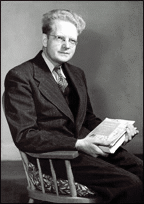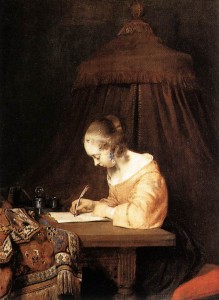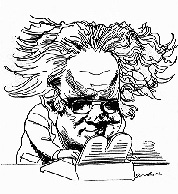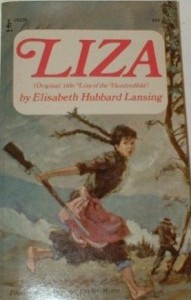
1942:
[74] Cool weather, thank God, but I made the fatal mistake of going to the Kings’ [Harold and Marjorie] at night. I paid for it with an asthmatic night. I wish I could develop the art of automatically avoiding the echoes which are the major source of revision in my writing: why couldn’t I have said “Kings in the evening”?
1950: Frye’s account of the day after the night before of drinking with the Thurbers (it involves still more drinking). He then describes a visit to a Catholic church a couple of days earlier, which in turn leads to some observations that anticipate the emerging Updikean vision of America in the 1950s.
[564] Sunday we nursed our hangovers and some people came in for yet another drink before lunch. Their neighbors the Lansings came: Mrs. [Elisabeth Hubbard] Lansing, who’s called City, is a writer of children’s books [pictured above], & breezed in surrounded with her own kids, like a Sistine Madonna. She was at the party last night, and I liked her.
[566] I forgot to say that on Friday Ken took us into one of the most beautiful modern churches I’ve ever seen. A little Catholic parish church dedicated to St. Thomas More, with clear glass windows and designs etched on them… [T]he whole effect was completely serene. I suppose the great appeal of Catholicism in the States today has a lot to do with the sense that the degenerate pseudo-Protestants who ought to be leading the country’s culture are shaking their nerves to pieces with indiscriminate drinking and fucking and chattering. Well, we got on the train & went home to Boston. We went into the buffet car for a snack. Mem: don’t ever go again into a buffet car for a snack. Swindling the public on food has really got to be a fine art: all eating places are getting assimilated to the supper-dance clip joints.
Tomorrow: in bed with Jane Austen
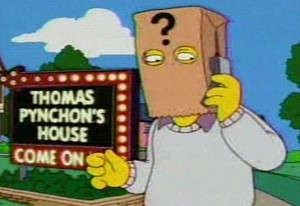
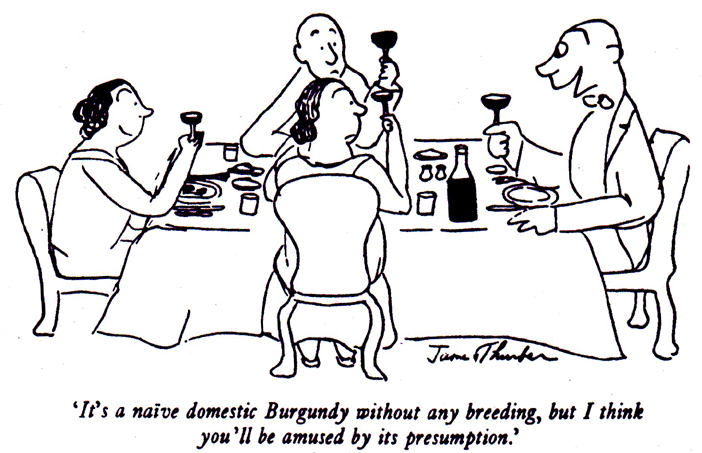 1942
1942